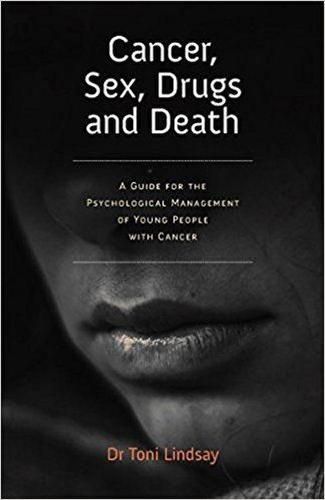Readings Newsletter
Become a Readings Member to make your shopping experience even easier.
Sign in or sign up for free!
You’re not far away from qualifying for FREE standard shipping within Australia
You’ve qualified for FREE standard shipping within Australia
The cart is loading…






This title is printed to order. This book may have been self-published. If so, we cannot guarantee the quality of the content. In the main most books will have gone through the editing process however some may not. We therefore suggest that you be aware of this before ordering this book. If in doubt check either the author or publisher’s details as we are unable to accept any returns unless they are faulty. Please contact us if you have any questions.
This book is a must read for any psychologist, psychiatrist, therapist or counsellor dealing with a young client undergoing cancer treatment. A cancer diagnosis can profoundly affect a young person’s psychological, emotional, developmental and cognitive functioning. The environment in which they find themselves is unpredictable and burdened by challenging decisions. It is vital therefore that no matter what your therapeutic approach, you are able to identify the normal reactions that young people and their families experience when dealing with their cancer, both while treatment is happening and when it is completed. This will enable you to better tailor your therapeutic interventions and manage your client’s psychological symptoms.
A strong clinical focus throughout the text provides guidance and structure, showing how to work effectively with young people through learning the language of cancer diagnosis and treatment so that the therapeutic skills you already possess are translatable to cancer-related issues. Through the use of composite case studies, examples, and clinical guides, Toni Lindsay brings her many years of experience working with young people and their families into a practical and insightful guide to upskill even the most senior of clinicians. She explores the clinical implications of treatment, diagnosis, survivorship and end of life, and the way that young people experience and negotiate their way through such adversity.
$9.00 standard shipping within Australia
FREE standard shipping within Australia for orders over $100.00
Express & International shipping calculated at checkout
This title is printed to order. This book may have been self-published. If so, we cannot guarantee the quality of the content. In the main most books will have gone through the editing process however some may not. We therefore suggest that you be aware of this before ordering this book. If in doubt check either the author or publisher’s details as we are unable to accept any returns unless they are faulty. Please contact us if you have any questions.
This book is a must read for any psychologist, psychiatrist, therapist or counsellor dealing with a young client undergoing cancer treatment. A cancer diagnosis can profoundly affect a young person’s psychological, emotional, developmental and cognitive functioning. The environment in which they find themselves is unpredictable and burdened by challenging decisions. It is vital therefore that no matter what your therapeutic approach, you are able to identify the normal reactions that young people and their families experience when dealing with their cancer, both while treatment is happening and when it is completed. This will enable you to better tailor your therapeutic interventions and manage your client’s psychological symptoms.
A strong clinical focus throughout the text provides guidance and structure, showing how to work effectively with young people through learning the language of cancer diagnosis and treatment so that the therapeutic skills you already possess are translatable to cancer-related issues. Through the use of composite case studies, examples, and clinical guides, Toni Lindsay brings her many years of experience working with young people and their families into a practical and insightful guide to upskill even the most senior of clinicians. She explores the clinical implications of treatment, diagnosis, survivorship and end of life, and the way that young people experience and negotiate their way through such adversity.